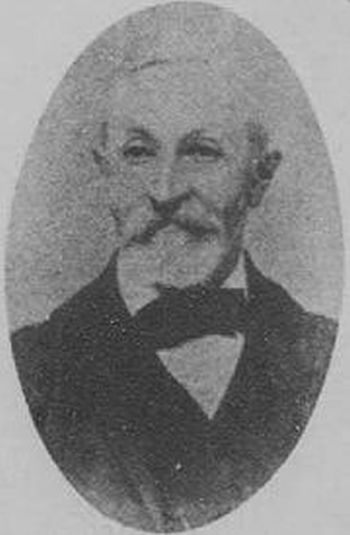
James Hamilton Ballagh was born on September 7th, 1832 in Hobart in Delaware County, NY, the son of immigrants from the north of Ireland. His parents were devout Presbyterians, and he signed a temperance pledge and never partook of alcohol, tobacco, or the theater in his life. After reading a text entitled The Harvest Perishing for Want of Reapers, he made the decision to become a missionary, a path which led him to Rutgers. Graduating in 1857, he completed study at the New Brunswick Theological Seminary in 1860 and was ordained in the same year. The following year, Duane B. Simmons left the Reformed Church missionaries in Japan and Ballagh was given the opportunity to replace him. Along with him he brought his wife Margaret Tate, whom he had married a few months prior.
They settled down with other missionaries in a compound in Yokohama, where they tried to discreetly spread and promote Christianity despite its illegality. In 1864, Ballagh began teaching English and Bible study at a boys’ school that would become known as the Yokohama Academy. The following year, he performed what was likely the first Protestant baptism on Japanese soil, that of Yano Mototaka, who had taught him Japanese. After the Meiji Restoration, he began to proselytize more openly. In 1872, he played a pivotal role in founding the Kaigan Church, the first Protestant church in Japan, and served as its first pastor. He received a doctorate in theology from Rutgers in 1907, and remained a missionary in Japan for almost the rest of his life, dying in Richmond, Virginia on a holiday on January 29th, 1920.
As the individual spiritual guide for hundreds of individuals, Ballagh was instrumental in the spread of Christianity in Japan. He founded multiple churches and was an advocate for their leadership by native Japanese Christians. He was also a supporter of education, teaching at multiple schools along with his younger brother John Craig, and helping to establish schools for girls and Eurasian children. Some of schools that they founded, like the Yokohama Academy and Doremus School, still exist today. A fluent speaker of Japanese, Ballagh clearly showed an appreciation for Japan and left a positive impact on the nation as a whole.
Sources:
Lepach, Bernd. “Ballagh, James Hamilton.” Meiji-Portraits, http://meiji-portraits.de.
Perrone, Fernanda. “The Rutgers Network in Early Meiji Japan.” Rikkyo American Studies 39 (2017): 79-101.